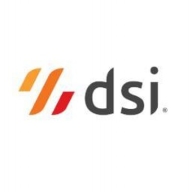

DSI Digital Supply Chain Platform and Microsoft Power Apps compete in the digital solution sector. Microsoft Power Apps holds an advantage due to its expansive feature set and integration capabilities.
Features: DSI Digital Supply Chain Platform focuses on demand planning, inventory management, and end-to-end visibility. Microsoft Power Apps offers low-code development, integration with Microsoft 365 and Dynamics 365, and adaptability.
Ease of Deployment and Customer Service: DSI provides straightforward implementation tailored for supply chain processes and dedicated support services. Microsoft Power Apps offers flexible deployment with comprehensive documentation and robust support channels.
Pricing and ROI: DSI offers cost-effective solutions with a high ROI for supply chain projects and competitive pricing. Microsoft Power Apps may be pricier but justifies the cost with its extensive capabilities and potential for long-term benefits.

Deliver the information needed to keep customers happy and drive profit with end-to-end supply chain visibility. DSI’s mobile-first application development platform is designed for rapid development and deployment, so you can put technology to work for your company. Increase visibility and productivity in any supply chain role and environment from ruggedized solutions to rich, gesture-driven consumer apps.
Microsoft Power Apps is a rapid application development software and low-code development platform. The solution consists of a suite of apps, services, connectors, and a data platform. It provides an environment for building custom apps which is suitable for different businesses.
Microsoft Power Apps allows users to not only build applications, but also connect them to Microsoft's other sources, including the underlying data platform Microsoft Dataverse, as well as online and on-premise sources such as SharePoint, Dynamics 365, and Microsoft 365. The applications built using Microsoft Power Apps have a responsive design that makes them suitable for work in browsers and on mobile applications on different devices.
The no-code side of the product makes it suitable for complete beginners to app building, allowing them to easily create fully functional applications with many features. The solution also has a specialized platform for developers where specialists can access data and metadata, create custom connectors, integrate with external data, and apply business logic. The solution allows users to create three types of apps: canvas, model-driven, and portal. They are made using:
Microsoft Power Apps Features
The three different design tools of the solution, Power Apps Studio, App Designer, and Power Apps Portals Studio, come with various features which allow users to utilize the tools. Some of these features include:
Microsoft Power Apps Benefits
The product brings various benefits to organizations and individuals who utilize it. Some of the biggest advantages of Microsoft Power Apps include:
Reviews from Real Users
An IT Specialist (INFOSEC) at a government appreciates this tool because it is low-code, low learning curve, and reduces manpower.
Rafael T., a data engineer at NTT Security, likes Microsoft Power Apps, because it is great for making apps quickly, has helpful support, and integrates with Power BI.
We monitor all Rapid Application Development Software reviews to prevent fraudulent reviews and keep review quality high. We do not post reviews by company employees or direct competitors. We validate each review for authenticity via cross-reference with LinkedIn, and personal follow-up with the reviewer when necessary.